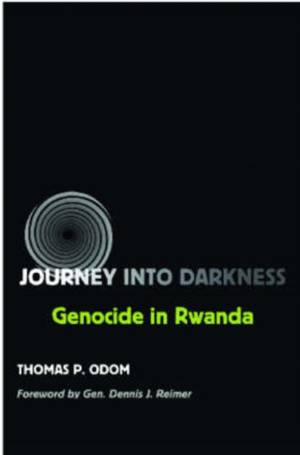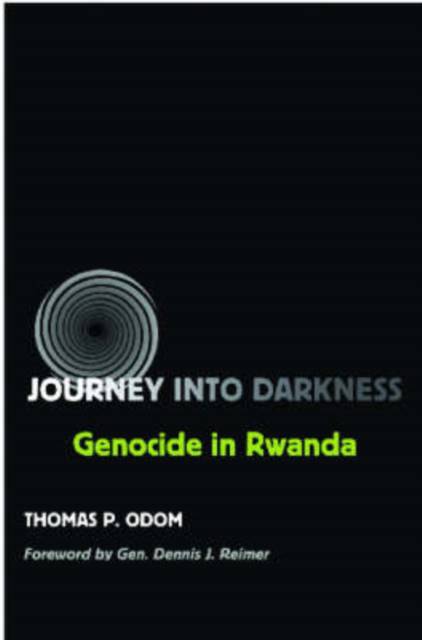
- Retrait gratuit dans votre magasin Club
- 7.000.000 titres dans notre catalogue
- Payer en toute sécurité
- Toujours un magasin près de chez vous
- Retrait gratuit dans votre magasin Club
- 7.000.0000 titres dans notre catalogue
- Payer en toute sécurité
- Toujours un magasin près de chez vous
Description
In July 1994, Thomas P. Odom was part of the U.S. Embassy team that responded to the Goma refugee crisis. He witnessed the deaths of 70,000 refugees in a single week. In the previous three months of escalating violence, the Rwandan genocide had claimed 800,000 dead. Now, in this vivid and unsettling new book, Odom offers the first insider look at these devastating events before, during, and after the genocide. Odom draws on his years of experience as a Defense Attaché and foreign area specialist in the United States Army to offer a complete picture of the situation in Zaire and Rwanda, focusing on two U.S. embassies, intelligence operations, U.N. peacekeeping efforts, and regional reactions. His team attempted to slow the death by cholera of refugees in Goma, guiding in a U.S. Joint Task Force and Operation Support Hope and remaining until the United States withdrew its forces forty days later. After U.S. forces departed, Odom crossed into Rwanda to spend the next eighteen months reestablishing the embassy, working with the Rwandan government, and creating the U.S.-Rwandan Demining office. Odom assisted the U.S. Ambassador and served as the principal military advisor on Rwanda to the U.S. Department of Defense and National Security Council throughout his time in Rwanda. His book candidly reveals Odom's frustration with Washington as his predictions that a larger war was coming were ignored. Unfortunately, he was proven correct: the current death toll in that unfortunate country is close to three million. Odom's account of the events in Rwanda illustrate not only illustrate how failures in intelligence and policy happen, but also show that a human context is necessary to comprehend these political decisions.
Spécifications
Parties prenantes
- Auteur(s) :
- Editeur:
Contenu
- Nombre de pages :
- 312
- Langue:
- Anglais
- Collection :
- Tome:
- n° 10
Caractéristiques
- EAN:
- 9781585444571
- Date de parution :
- 01-07-05
- Format:
- Livre broché
- Format numérique:
- Trade paperback (VS)
- Dimensions :
- 155 mm x 237 mm
- Poids :
- 530 g

Les avis
Nous publions uniquement les avis qui respectent les conditions requises. Consultez nos conditions pour les avis.






